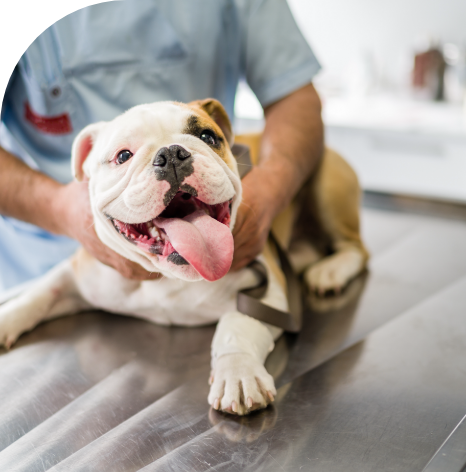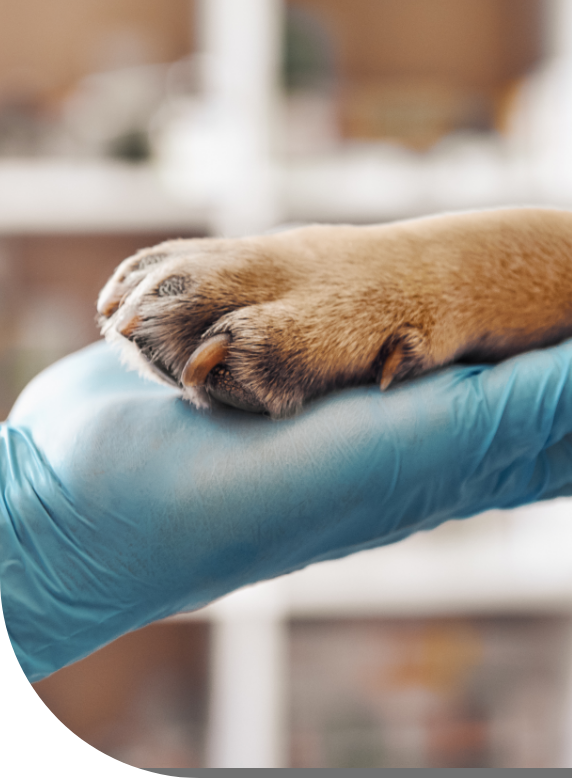Home | Surgeries | Dental & Oral Surgery
Dental & Oral Surgery
Dental & Oral Surgery for Pets in Michigan
At Canton Animal Hospital, we offer comprehensive dental and oral surgery for dogs and cats to ensure optimal oral health and overall well-being. Dental disease is one of the most common health issues in pets, leading to pain, infection, and even organ damage if left untreated. Our experienced veterinary team provides preventative, corrective, and emergency dental procedures to maintain your pet’s healthy smile and improve their quality of life.
We utilize state-of-the-art dental equipment and anesthesia protocols to perform safe, precise, and effective oral surgeries. Whether your pet requires a routine tooth extraction, treatment for periodontal disease, cleft palate repair or a more complex oral procedure, our team is dedicated to providing compassionate, high-quality care.
Signs Your Pet May Need Dental Surgery
Persistent bad breath (halitosis)
Difficulty eating or chewing food
Excessive drooling or pawing at the mouth
Swollen or bleeding gums
Loose or missing teeth
Visible oral tumors or growths
Facial swelling or signs of pain
Common Dental & Oral Surgeries We Perform
Tooth Extractions – Removal of damaged, infected, or broken teeth to relieve pain and prevent further complications.
Periodontal Surgery – Advanced treatment for severe gum disease to prevent tooth loss and infection.
Oral Growths/ Tumors Removal – Safe excision of benign or malignant growths in the mouth.
Jaw Fracture Repair – Surgical stabilization of jaw fractures caused by trauma or disease.
Oro-Nasal Fistula Repair – Correction of oral-nasal fistulas that can cause chronic infections and respiratory issues.
Post-Surgery Care & Recovery
Feed soft food for a few days to aid healing.
Monitor for signs of pain or swelling and administer prescribed medications.
Keep your pet’s mouth clean with vet-approved oral hygiene practices.
Schedule follow-up visits to ensure proper healing and continued dental care.
Why Choose Canton Animal Hospital for Pet Dental Surgery?
Experienced Veterinary Dentists – Skilled professionals specializing in pet oral health.
Advanced Anesthesia & Pain Management – Ensuring safety and comfort throughout the procedure.
State-of-the-Art Dental Equipment – Modern technology for accurate diagnosis and precise treatment.
Comprehensive Oral Exams & X-Rays – Thorough assessments to detect hidden dental issues.
Personalized Aftercare Plans – Detailed recovery instructions for optimal healing.
Schedule a Dental Surgery Consultation
If your pet is experiencing oral health issues, Canton Animal Hospital is here to provide expert dental and oral surgery.
Call us today at 734-397-7779 or Book an Appointment Online for a consultation.
Canton Animal Hospital – Ensuring Healthy Smiles for Pets in Michigan.
Featured Resource

We Welcome New Patients!
We're always happy to give your furry friend care at our hospital. Get in touch today!
Contact UsDental & Oral Surgeries We Offer


Oral tumor removal in dogs and cats treats benign and cancerous growths, preventing pain, difficulty eating, and further health complications.
Brachycephalic airway surgery improves breathing in flat-faced breeds by correcting stenotic nares, elongated soft palate, and other airway obstructions.
Fractured tooth extraction in pets removes damaged teeth to prevent pain, infection, and oral health issues, ensuring comfort and long-term dental health.
Jaw fracture repair in pets restores proper alignment and function after trauma, ensuring pain relief, healing, and a return to normal eating and activity.
Oronasal fistula in dogs is an abnormal opening between the mouth and nose, requiring surgical repair to prevent infections, nasal discharge, and eating difficulties.
Salivary mucocele surgery drains and removes obstructed salivary glands, relieving swelling, discomfort, and difficulty eating in dogs and cats.
Cleft palate repair surgery corrects birth defects in puppies, allowing proper eating, drinking, and breathing for a healthier life.
Nasopharyngeal polyp removal in cats restores normal breathing and swallowing by eliminating benign growths in the ear, throat, or nasal passages.
Related Articles about Surgeries
Is your pet scheduling a surgery soon? Explore our resource center for additional articles that may be of interest.
Featured Resource

We Welcome New Patients!
We're always happy to give your furry friend care at our hospital. Get in touch today!
Contact UsHelpful Links
Additional Information





